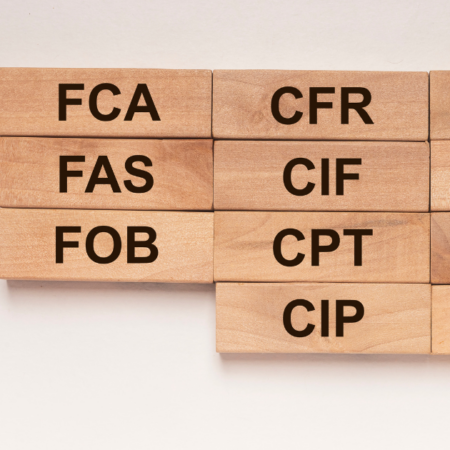Understanding Incoterms in Trade: A Guide to Smooth International Transactions

When it comes to international trade, clear communication, and precise agreements are critical for avoiding misunderstandings and ensuring smooth transactions. One of the foundational elements of global trade is the use of Incoterms, short for International Commercial Terms. Incoterms are standardized trade terms that define the responsibilities of buyers and sellers involved in international transactions. Understanding these terms is essential for businesses looking to navigate the complexities of global trade efficiently and minimize risks.
What Are Incoterms?
Incoterms are a set of globally recognized rules established by the International Chamber of Commerce (ICC) that specify who is responsible for various costs and risks associated with the shipping of goods. These terms determine at which point the risk transfers from the seller to the buyer, who pays for insurance and freight, and who is responsible for duties and customs clearance. Since their creation in 1936, Incoterms have been updated regularly to reflect changes in global trade practices, with the most recent update being in 2020.
Types of Incoterms and Their Applications
Incoterms are categorized primarily into two groups: those applicable to any mode of transport (including EXW, FCA, CPT, CIP, DAP, DPU, and DDP) and those specific to sea and inland waterway transport (such as FAS, FOB, CFR, CIF). Each Incoterm specifies distinct responsibilities, costs, and risks:
- EXW (Ex Works): Under EXW, the seller makes the goods available at their premises, and the buyer is responsible for all transportation costs and risks from that point forward. This term places maximum obligation on the buyer and minimum on the seller.
- FOB (Free on Board): FOB is widely used in sea freight. The seller is responsible for delivering goods onto the ship, after which the risk transfers to the buyer. Buyers take on costs and risks from the point of loading onward.
- CIF (Cost, Insurance, and Freight): With CIF, the seller covers the costs, insurance, and freight to bring the goods to the port of destination. The risk, however, transfers to the buyer once the goods are loaded on the ship.
- DDP (Delivered Duty Paid): DDP represents the maximum obligation for the seller. The seller handles all costs, including import duties and taxes, and takes care of delivering the goods to the buyer’s premises. This term is often used when the seller wants to provide an all-inclusive price.
Each term offers a unique balance of responsibilities and risks, making it vital for businesses to select the right Incoterm for their specific trade scenarios. The choice of Incoterm can affect shipping costs, customs processes, and overall risk exposure, making it a crucial decision in any international trade agreement.
Why Understanding Incoterms is Critical for Businesses
Understanding Incoterms is essential for businesses engaged in international trade for several reasons. First, it helps avoid costly disputes by clearly outlining the responsibilities of both parties. Second, it aids in negotiating better trade terms by allowing buyers and sellers to choose terms that align with their logistical capabilities and financial strategies. Lastly, the correct use of Incoterms can optimize shipping costs, improve delivery times, and minimize risks by ensuring clarity on duties, taxes, and shipping responsibilities.
For example, a company importing goods may prefer to use CIF if they want the seller to handle freight and insurance costs to the destination port. On the other hand, an exporter may favor FOB, allowing them to control costs up to the shipping point while the buyer manages the rest. Selecting the right Incoterm based on the business’s logistical strengths and market conditions can significantly impact profitability and customer satisfaction.
How Bestway International Helps with Incoterms
Navigating the complexities of Incoterms can be challenging, especially for businesses new to international trade. At Bestway International, we offer expert guidance on selecting the most suitable Incoterms for your transactions, ensuring clarity, compliance, and cost-effectiveness. Our professional team helps you understand each term’s implications, align them with your logistics strategy, and negotiate better terms with your trading partners.
Ensure smooth international transactions by understanding and using the right Incoterms. Contact Bestway International today to get expert advice on choosing the best terms for your business needs.
